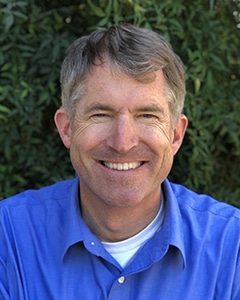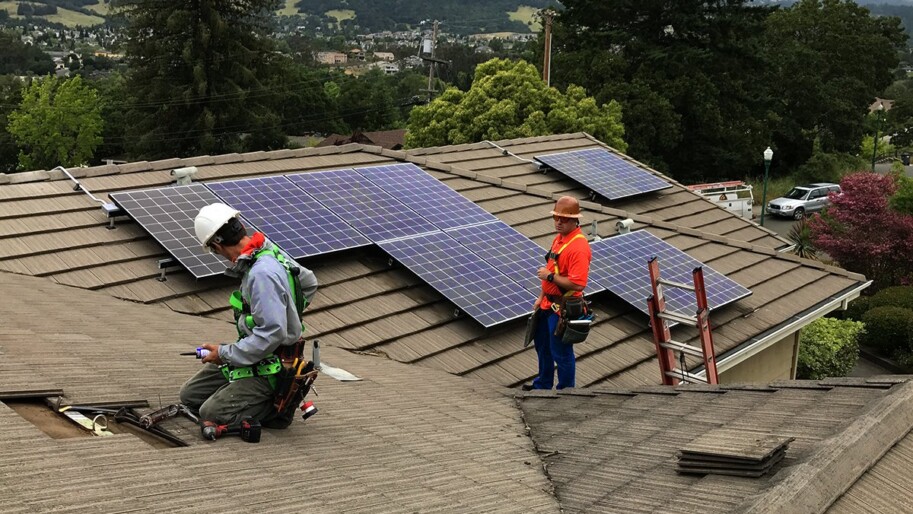URGENT: Have your organization sign on here to support utility reform and clean community energy resilience. Individuals, please reach out to your state elected officials here.
A key priority of The Climate Center’s Climate-Safe CA effort is to advance the ability of local governments to create fossil fuel-free, safe, resilient and accessible local electricity systems.
Technology advances — including rapidly-declining costs for solar and battery storage — are making it possible to build an entirely new decentralized, integrated electricity grid. This will require utility regulatory reform and new funding to empower local governments to be in charge of siting decisions about new energy infrastructure, rather than communities having decisions imposed upon them by distant corporate decisionmakers. Governor Newsom recently articulated some of the needed principles for this vision, echoing policy proposals that have been recommended by The Climate Center and partner organizations.
The Climate Center, in collaboration with Advanced Community Energy (ACE) initiative partners, recently advanced two bills in the California legislature to achieve these policy priorities:
- SB 1314 (Introduced by Senator Bill Dodd). The Community Energy Resilience Act requires the Strategic Growth Council to develop and implement a grant program for local governments interested in developing clean energy-based community energy resilience plans.
- Why the bill is needed: Climate change-driven drought and fire conditions, along with dangerously outdated electricity infrastructure, led to costly power shutoffs in 2019. In the wake of last year’s disasters and facing future shutoffs, utilities and local governments are scrambling to find solutions that keep the electricity flowing. Unfortunately, dirty fossil fuel back-up generators are being installed in towns, businesses and community facilities across the state. These short-term electricity sources are counter to state goals for greenhouse gas reductions, environmental protection, and public health and safety. Today’s cost-effective, clean and decentralized clean energy resources can provide a better solution: when grid power is down, microgrids can disconnect from the larger grid to provide reliable clean power to key facilities such as fire stations and schools. SB 1314 would initially prioritize funding lower-income communities in fire prone regions to plan for clean energy resilience. For additional information, see the recently released report by Vote Solar as well as the Community Energy Resilience Act Budget Request Letter submitted to legislators by The Climate Center and partners.
- SB 1240 (Introduced by Senator Nancy Skinner). This bill would require the California Energy Commission, in consultation with the California Independent System Operator (which manages the flow of electricity into and across the state), to identify and evaluate options for transforming the electricity distribution system to becoming an open local electricity market.
- Why the bill is needed: The basic architecture of our electricity system hasn’t changed over the past hundred years, notwithstanding substantial technological advancements. Power no longer flows one way, from distant large power plants to cities and homes. It is now possible for power to flow back and forth locally within a distribution system. With the implementation of the state’s renewable energy goals, the growth of smart appliances and electric vehicles, and dramatically declining prices for clean energy, a cleaner, decentralized grid is now possible – which would require substantial changes in how our electricity system is managed. This new legislation, if passed, would speed the transition to a 21st century decentralized and clean electricity system. For additional information, read this Vox article.
We are grateful to Senators Dodd and Skinner for their leadership. To help secure passage, we need organizations across California to register their support for these two bills. Click here to add your organization to the list of supporters.


